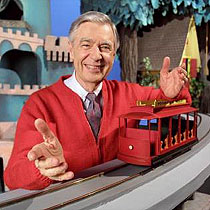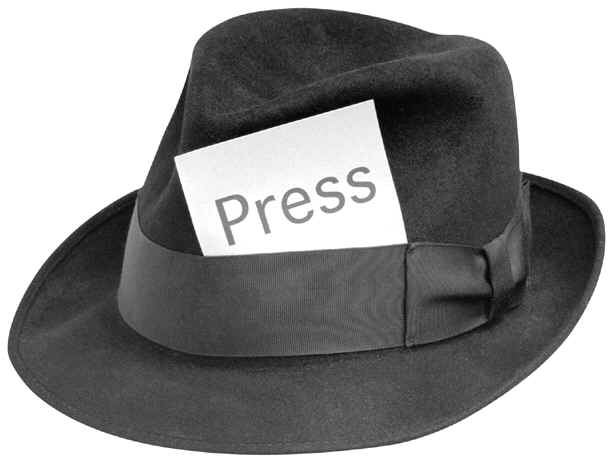Since I’ve been adding new readers along the way, I always get questions about why I started this thing. I recently expanded the “about” section, and that’s a good starting point. But more of a back story is in order.
Mood music:
Before I started THE OCD DIARIES in December 2009 with a post about depression hitting me during the holidays, I had always toyed with the idea of doing this. The reason for wanting to was simple: The general public understands little about mental disorders like mine. People toss the OCD acronym around all the time, but to them it’s just the easy way of saying they have a Type-A personality.
Indeed, many Type-A people do have some form of OCD. But for a smaller segment of the population, myself included, it’s a debilitating disease that traps the sufferer in a web of fear, anxiety, and depression that leads to all kinds of addictive behavior. Which leads me to the next reason I wanted to do this.
My particular demons gave me a craving for anything that might dull the pain. For some it’s heroin or alcohol. I have gone through periods where I drank far too much, and I learned to like the various prescription pain meds a little too much. But the main addiction, the one that made my life completely unmanageable, was binge eating.
Most people refuse to acknowledge that as a legitimate addiction. The simple reason is that we all need food to survive and not the other things. Overeating won’t make you drunk or high, according to the conventional wisdom. In reality, when someone like me goes for a fix, it involves disgusting quantities of junk food that will literally leave you flopping around like any garden-variety junkie. Further evidence that this as an addiction lies in the fact that there’s a 12-Step program for compulsive over-eaters called Overeater’s Anonymous (OA). It’s essentially the same program as AA. I wanted to do my part to make people understand.
Did I worry that I might get fired from my job for outing myself like this? Sure. But something inside me was pushing me in this direction and I had to give in to my instincts. You could say it was a powerful OCD impulse that wasn’t going to quit until I did something about it.
I write a lot about my upbringing, my family and the daily challenges we all face because I still learn something each day about my condition and how I can always be better than I am. We all have things swirling around inside us that drive us to a certain kind of behavior, and covering all these things allows me to share what I’ve learned so others might find a way out of their own brand of Hell.
I’m nothing special.
Every one of us has a Cross to bear in life. Sometimes we learn to stand tall as we carry it. Other times we buckle under the weight and fall on our faces.
I just decided to be the one who talks about it.
Talking about it might help someone realize they’re not a freak and they’re not doomed to a life of pain.
If this helps one person, it’ll be worth it.
When I first started the blog, I laid out a back story so readers could see where I’ve been and how personal history affected my disorders. If you read the history, things I write in the present will probably make more sense.
With that in mind, I direct you to the following links:
The Long History of OCD
An OCD Christmas. The first entry, where I give an overview of how I got to crazy and found my way to sane.
The Bad Pill Kept Me from the Good Pill. How the drug Prednisone brought me to the brink, and how Prozac was part of my salvation.
The Crazy-Ass Guy in the Newsroom. Think you have troubles at work? You should see what people who worked with me went through.
The Freak and the Redhead: A Love Story. About the wife who saved my life in many ways.
Snowpocalypse and the Fear of Loss. The author remembers a time when fear of loss would cripple his mental capacities, and explains how he got over it — mostly.
The Ego OCD Built. The author admits to having an ego that sometimes swells beyond acceptable levels and that OCD is fuel for the fire. Go ahead. Laugh at him.
Fear Factor. The author describes years of living in a cell built by fear, how he broke free and why there’s no turning back.
Prozac Winter. The author discovers that winter makes his depression worse and that there’s a purely scientific explanation — and solution.
Have Fun with Your Therapist. Mental-illness sufferers often avoid therapists because the stigma around these “shrinks” is as thick as that of the disease. The author is here to explain why you shouldn’t fear them.
The Engine. To really understand how mental illness happens, let’s compare the brain to a machine.
Rest Redefined. The author finds that he gets the most relaxation from the things he once feared the most.
Outing Myself. The author on why he chose to “out” himself despite what other people might think.
Why Being a People Pleaser is Dumb. The author used to try very hard to please everybody and was hurt badly in the process. Here’s how he broke free and kept his soul intact.
The Addiction and the Damage Done
The Most Uncool Addiction. In this installment, the author opens up about the binge-eating disorder he tried to hide for years — and how he managed to bring it under control.
Edge of a Relapse. The author comes dangerously close to a relapse, but lives to fight another day.
The 12 Steps of Christmas. The author reviews the 12 Steps of Recovery and takes a personal inventory.
How to Play Your Addictions Like a Piano. The author admits that when an obsessive-compulsive person puts down the addiction that’s most self-destructive, a few smaller addictions rise up to fill the void. But what happens when the money runs out?
Regulating Addictive Food: A Lesson in Futility. As an obsessive-compulsive binge eater, the author feels it’s only proper that he weigh in on the notion that regulating junk food might help. Here’s why the answer is probably not.
The Liar’s Disease. The author reveals an uncomfortable truth about addicts like himself: We tend to have trouble telling the truth.
Portable Recovery. Though addiction will follow the junkie anywhere in the world, the author has discovered that recovery is just as portable.
Revere (Experiences with Addiction, Depression and Loss During The Younger Years)
Bridge Rats and Schoolyard Bullies. The author reviews the imperfections of childhood relationships in search of all his OCD triggers. Along the way, old bullies become friends and he realizes he was pretty damn stupid back then.
Lost Brothers. How the death of an older brother shaped the Hell that arrived later.
Marley and Me. The author describes the second older brother whose death hit harder than that of the first.
The Third Brother. Remembering Peter Sugarman, another adopted brother who died too early — but not before teaching the author some important lessons about life.
Lessons from Dad. The author has learned some surprising lessons from Dad on how to control one’s mental demons.
The Basement. A photo from the old days in Revere spark some vivid flashbacks.
Addicted to Feeling Good. To kick off Lent, the author reflects on some of his dumber quests to feel good.
The lasting Impact of Crohn’s Disease. The author has lived most of his life with Crohn’s Disease and has developed a few quirks as a result.
The Tire and the Footlocker. The author opens up an old footlocker under the stairs and finds himself back in that old Revere basement.
Child of Metal
How Metal Saved Me. Why Heavy Metal music became a critical OCD coping tool.
Insanity to Recovery in 8 Songs or Less. The author shares some videos that together make a bitchin’ soundtrack for those who wrestle with mental illness and addiction. The first four cover the darkness. The next four cover the light.
Rockit Records Revisited. The author has mentioned Metal music as one of his most important coping tools for OCD and related disorders. Here’s a look at the year he got one of the best therapy sessions ever, simply by working in a cramped little record store.
Metal to Stick in Your Mental Microwave.
Man of God
The Better Angels of My Nature. Why I let Christ in my life.
The Rat in the Church Pew. The author has written much about his Faith as a key to overcoming mental illness. But as this post illustrates, he still has a long way to go in his spiritual development.
Absolute Power Corrupts Absolutely. The author goes to Church and comes away with a strange feeling.
Running from Sin, Running With Scissors. The author writes an open letter to the RCIA Class of 2010 about Faith as a journey, not a destination. He warns that addiction, rage and other bad behavior won’t disappear the second water is dropped over their heads.
Forgiveness is a Bitch. Seeking and giving forgiveness is essential for someone in recovery. But it’s often seen as a green light for more abuse.
Pain in the Lent. The author gives a progress report on the Lenten sacrifices. It aint pretty.








